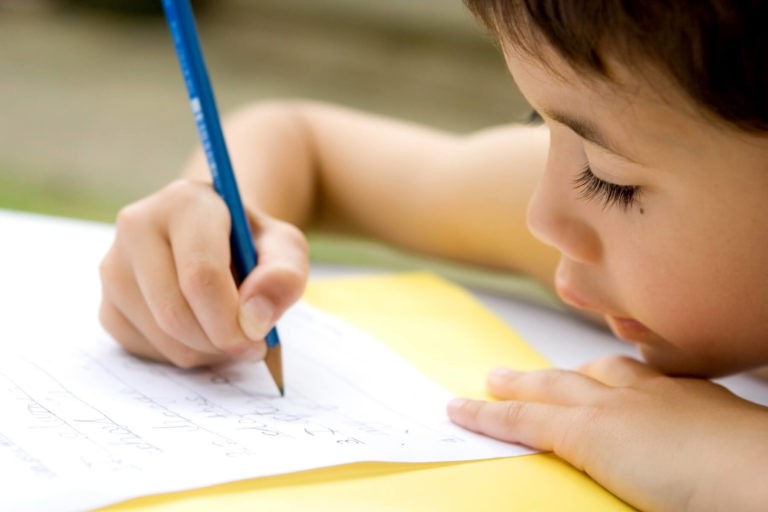The Power of Words
Think of your own name and all that it entails within that one word. Words are important as they connect people to stories, conversations, and other people. Each day, people of all ages are listening to words, speaking words, reading words, writing words, and playing with words.
Does your classroom celebrate books, authors, reading, and writing? When students understand how words are the common denominator of these items, they can see how words connect the reading and writing process. In this manner, the literacy journey for them makes more sense and is much easier to navigate despite a child鈥檚 age or reading level.
The Power of Words in Reading
Reading is a complex skill. Students must be able to read words for accuracy, read words fluently, and understand the meaning of words. The concept of words is the most basic principle of reading and a strong predictor of a child鈥檚 reading skills and success. Can a student count the number of letters in a word and the number of words in a sentence? Can they put words in order to make sense? Can they identify a word from a text isolation? These are all concepts of word skills often introduced in kindergarten. Nursery rhymes, poems, traditional songs, and predictable books are engaging way for young readers to begin reading with a focus on letter and sound relations and concept of word.
As early as kindergarten, students begin to identify and distinguish between letter and sound relationships and rhyme by listening to words, learning high frequency words that are most common in text, and determining how words are similar and different through word families and patterns. Decoding words accurately in a text based on phonics patterns is a reading skill that will equip readers with the tools to read any unknown word on the page of a book. Once a student can fluently decode words on the page, they can then focus on understanding the meaning of the words to comprehend the text. It is only then that students can complete the ultimate goal of reading-comprehension.
The Power of Words in Writing
Writing is an essential part of literacy development for children of all ages. Handwriting, spelling, creative writing, and research all fall under the umbrella of writing. Spelling words correctly is based on the understanding of phonics patterns so that children can properly encode. Children should be able to write the sounds and patterns of letters they hear in sequence in words.
Writing for a purpose and writing for and writing for an intended audience are an important part of the writing process. When words are spelled correctly and structured in a syntax that makes sense and engages the reader, a child鈥檚 writing abilities increase. When children add vivid or strong vocabulary in their writing, the product is considered exceptional.
Connecting Reading to Writing through Words
When we understand how reading and writing are so closely related to literacy success, teachers will begin to plan both subjects daily and more effectively. Students will then be able to see the two components as connected rather than isolated. Every child can learn to be a good writer and have good writing skills just as easily as they can learn to be a good reader. In fact, a child鈥檚 reading level and writing level very closely match. Often times, a child鈥檚 reading level is slightly higher than their writing abilities. This is simply because we write what we see and read. Therefore, if a fifth grade student reads on a second grade level, chances are the student will produce writing samples around a second grade level. Reading not only increases our fluency and vocabulary development, it also increases our writing abilities. Repetition in writing instruction is as effective as repetition in reading instruction.
Reading and writing are connected through words. . When students independently identify patterns in words in a variety of text and spell them correctly on an assignment over a period of time, they are increasing their reading and writing skills. They should also be encouraged to write about what they are reading to show understanding and interpretation.
Students should also be given the opportunity to read aloud their own writing to others celebrating their voice, opinion, and expression. Being exposed to reading a variety of genres and writing a variety of genres, is also important. At the end of a poetry unit, invite children to write a poem. Ask students to write their own autobiography and biography of a family member. Teach the author鈥檚 purpose for writing the text the students are reading. Then, explore how the author wrote the text focusing on their word choice.
Every student can be a successful reader and writer when we understand how to support the two elements through guided reading and interactive writing. The average three-year-old has heard at least three million words before entering preschool. Words are powerful, and they are the critical piece that connects reading to writing in everything we do.




